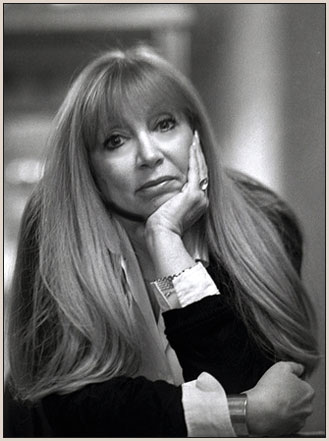Four Questions for Gloria Naylor
1. Recent publishing industry news points out that despite a stronger presence of African-American literature, the range of interests, voices, and concerns of African-American readers are not adequately represented in books produced by the traditional publishing houses. Do you think smaller presses and self-publishing will help change this?
I believe they already have. Small presses and university presses have traditionally been a home for a wide array of views and concerns for African-Americans. And that's the way it should be. I don't feel that commercial publishing houses can — or should — attempt to cover all the special interests that prevail. Many are not equipped with the editors or marketing techniques to target the best audience for certain books. While a smaller house may not reach as wide an audience for a certain book, they will certainly target and reach an interested audience. And writers should not just want to be published — they should want to be read.
2. Have you ever considered self-publishing?
I've personally been fortunate enough to find an interested publisher for most of the work I've produced. And I've felt that the time and business acumen needed for self-publishing were beyond my abilities. But it's not something I would rule out for a person who's interested in investing all the time and effort needed.
3. There's also some debate about African-American literature being lumped together in bookstores, removing it once again from the general category of "literature" or general fiction, and therefore separating it from the literary "canon," whatever that is. What's your take on this?
I'm of two minds about this issue. There is really no one lump category called "American literature." The literature, like the country, is a polygot of different cultures and regions. Each has produced a distinct school of writing speaking to that particular uniqueness. But the politics of literature has traditionally relegated heterosexual white male literature from the northeast as American literature and everything else — regional, cultural, or female — as "special" literature. While I do take exception to this, I feel that African-American literature does have a core following of readers and scholars who cannot always depend upon the mainstream reviewers to alert them of new books in print. In this case, a separate section helps to serve the need of those readers to keep up with what's on the shelves. And if that is the motive of the booksellers, then I don't see a problem. But if the shelf placement is to meant to segregate the books, then I think a re-evaluation of the mindset of the bookseller is in order.
4. A recent Washington Post article discussed the issue of "writing what you know" vs. "writing what you want to know about." Can a white writer adequately write about black history, or Native American history, for that matter? Do you subscribe to the old "write what you know" cliche, or are research, passion, and interest sufficient requisites for writing?
I believe that the world is open game for any writer. If a subject is approached with care and compassion, then writers can cross cultural divides and do a creditable job. However, what cannot be researched or empathised is the personal resonance of a particular cultural experience — you have to be there to know there — which does not say that a black writer with inadequate skills can convey aspects of black life better than a white writer with greater skills. But nothing surpasses having a writer with the requisite skills catch the tones and textures and nuances of their own specific culture — they can make you feel what they feel, see what they see, hear what they hear. And it's from that formula that all the truly great books have come. But a merely good book isn't a bad thing either.

Gloria Naylor is a writer for theatre, film and television and the author of novels which include The Women of Brewster Place (1983 National Book Award Winner), Mama Day and Bailey's Cafe. She also edited the anthology, Children of the Night: The Best Short Stories by Black Writers 1967 to the Present. Her novels now mark their twelfth language translation.
Ms. Naylor graduated with highest honors from Brooklyn College and received a masters degree from Yale University. She has been distinguished with numerous honors including Senior Fellow, The Society for the Humanities, Cornell University; the President's Medal, Brooklyn College; and Visiting Professor, University of Kent, Canterbury, England. Ms. Naylor has won Guggenheim and National Endowment for the Arts fellowships for her novels; for her screenwriting, she has been awarded the New York Foundation for the Arts Fellowship. In April of 1994, Bailey's Cafe enjoyed a successful run during its world premier at the Hartford Stage Company.
Original post, visit the Xlibris.





 M. J. Rose has been called the poster girl of e-publishing by Time and has been profiled in Forbes, Business 2.0, Working Woman Magazine, Newsweek and New York Magazine.
M. J. Rose has been called the poster girl of e-publishing by Time and has been profiled in Forbes, Business 2.0, Working Woman Magazine, Newsweek and New York Magazine.



